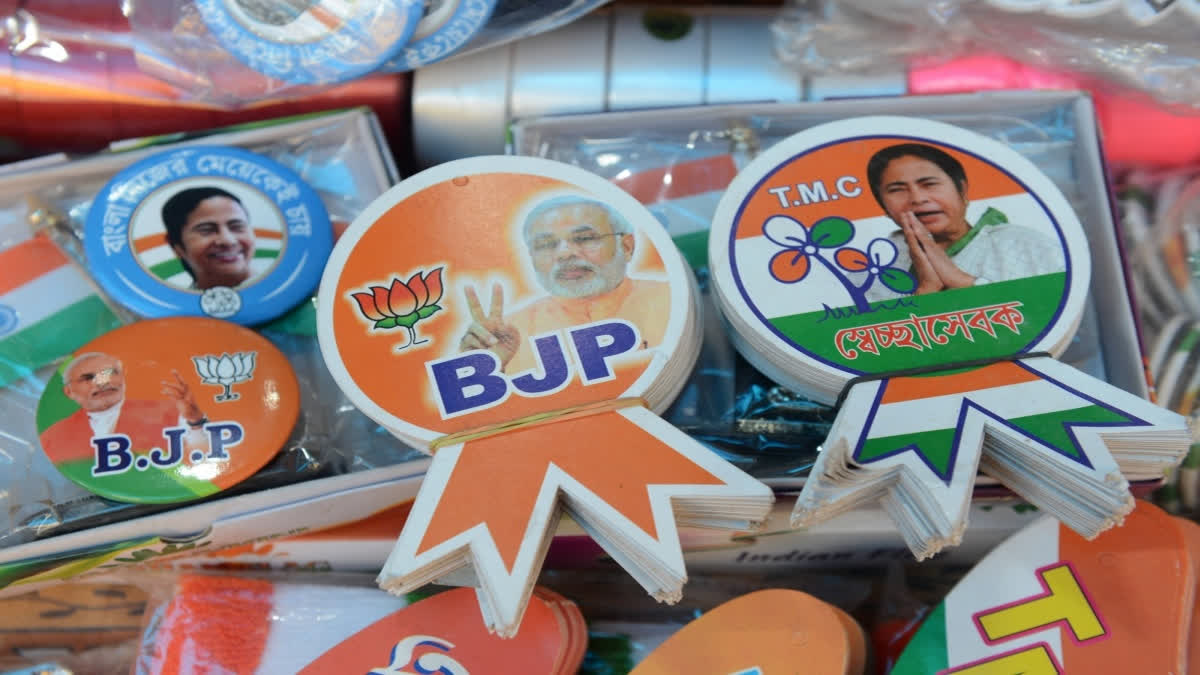Kolkata: Ailing health of the tea industry, closed gardens, discontent over socio-economic conditions and stagnant wages of plantation workers could emerge as key issues for both the TMC and the BJP in the upcoming polls in four Lok Sabha seats in the northern part of West Bengal.
In the run-up to the general elections, the air is thick with blame games among political parties and a cacophony of promises that reverberate through 300-odd tea gardens spread across Darjeeling, Dooars and Terai regions.
Though tea plantations are touted as India's second-largest employer, the plight of the estate workers whose votes are crucial for all parties is a major poll plank, industry stakeholders said.
The sector is plagued by the twin blows of rising production costs and lower price realisation at the auctions, former Tea Board chairman P K Bezbaruah said.
This might have thrown the planters' business and livelihood of 4.5 lakh tea garden workers into jeopardy, but political parties get an opportunity to woo them with promises.
"The workers will vote against the negligence that they have been enduring. Neither the Centre's BJP nor the TMC government has helped them get rid of their distress with dwindling ration system and deteriorating medical facilities," Convenor of Joint Forum of Trade Unions and CITU's general secretary (tea industry) Zia-Ul-Alam told PTI.
Mani Kumar Darnal, leader of INTUC in the Dooars region of north Bengal, said closed gardens are "not reopening, while huge defaults in making statutory payments like PF and gratuity created resentment among workers.
According to the planters' body Tea Association of India (TAI) estimates, there are nearly 12 closed gardens in north Bengal.
Darnal alleged that the Tea Board, under the union commerce ministry, stopped giving subsidies to the industry eight years ago, adding that this could be a major issue in the elections.
Nakul Sonar, leader of Trinamool Congress-affiliated INTTUC, expressed similar views. "Public representatives who had gone to Parliament on BJP tickets had done nothing for the development of tea gardens," Sonar alleged.
What's brewing in tea belt?
The BJP wrested Alipurduars, Jalpaiguri and Cooch Behar Lok Sabha constituencies from the TMC in the 2019 elections and retained the Darjeeling seat.
Rejecting the TMC's allegation, BJP MLA Manoj Tigga, who is contesting from Alipurduars, claimed that the distress among workers is "due to the state government, which is blocking the Centre's welfare schemes".
"The state administration is providing funds from the Centre's housing scheme but propagating this as a state's assistance. They are depriving garden workers of various benefits in connivance with planters," the BJP legislator alleged.
With production levels crossing more than 1350 million kilograms per annum in the country, stagnant growth in domestic consumption coupled with dwindling export markets is causing consternation among tea planters and workers alike, who are seeking interventions from the central and state governments.
Bezbaruah said, "Everyone is making losses. The wages are rising and prices are not improving. The situation is not good. If wages rise further, the gardens will have no option but to close down".
Confederation of Indian Small Tea Growers Associations president Bijoy Gopal Chakraborty said financial assistance under the tea development and promotion scheme increased by 82 per cent from Rs 290.81 crore to Rs 528.97 crore for 2024-24 and 2025-26 financial years but the industry needs "concerted government interventions" to overcome the sluggish phase.
Being a labour-intensive industry, the wages comprise almost 60 per cent of the total cost of production and any further increase will have far-reaching consequences.
Wages in West Bengal have risen 9.28 per cent during the period 2014 to 2023, and auction prices in North India have only increased by 2.90 per cent during the period, TAI said.
The current level of minimum wage for tea workers in West Bengal is Rs 250, which is paid in cash, along with other benefits like education, health, ration and housing.
Migration of tea workers to Southern states
However, CITU leader Alam said migration of tea garden workers from West Bengal to southern states and increasing absenteeism in estates have become a routine affair, and such a situation arose due to of non-implementation of Minimum Wages Act.
Sonar said the West Bengal government's effort to extend financial support to tea garden workers under the 'Cha Sundari' scheme to build houses and provide land pattas to them will give a political dividend to TMC.
The government effort to change the nature of land will only encourage monetisation of resources and promote tourism in tea gardens and will not benefit workers, Alam said.
After the TMC's poll debacle in the tea-growing region and north Bengal as a whole in 2019, the party sought to regain lost ground by working on issues related to land rights and livelihoods of workers which did well for the ruling party in the 2021 assembly polls, political analyst Subhomay Maitra told PTI.
Compared to the 2019 Lok Sabha elections, the TMC is likely to fare better this time, he said. Sonar also claimed that the chief minister "effectively intervened to temporarily resolve the crisis" arising out of bought leaf factories' decision to procure only green leaves which meet the compliance standards of the food safety regulator.



